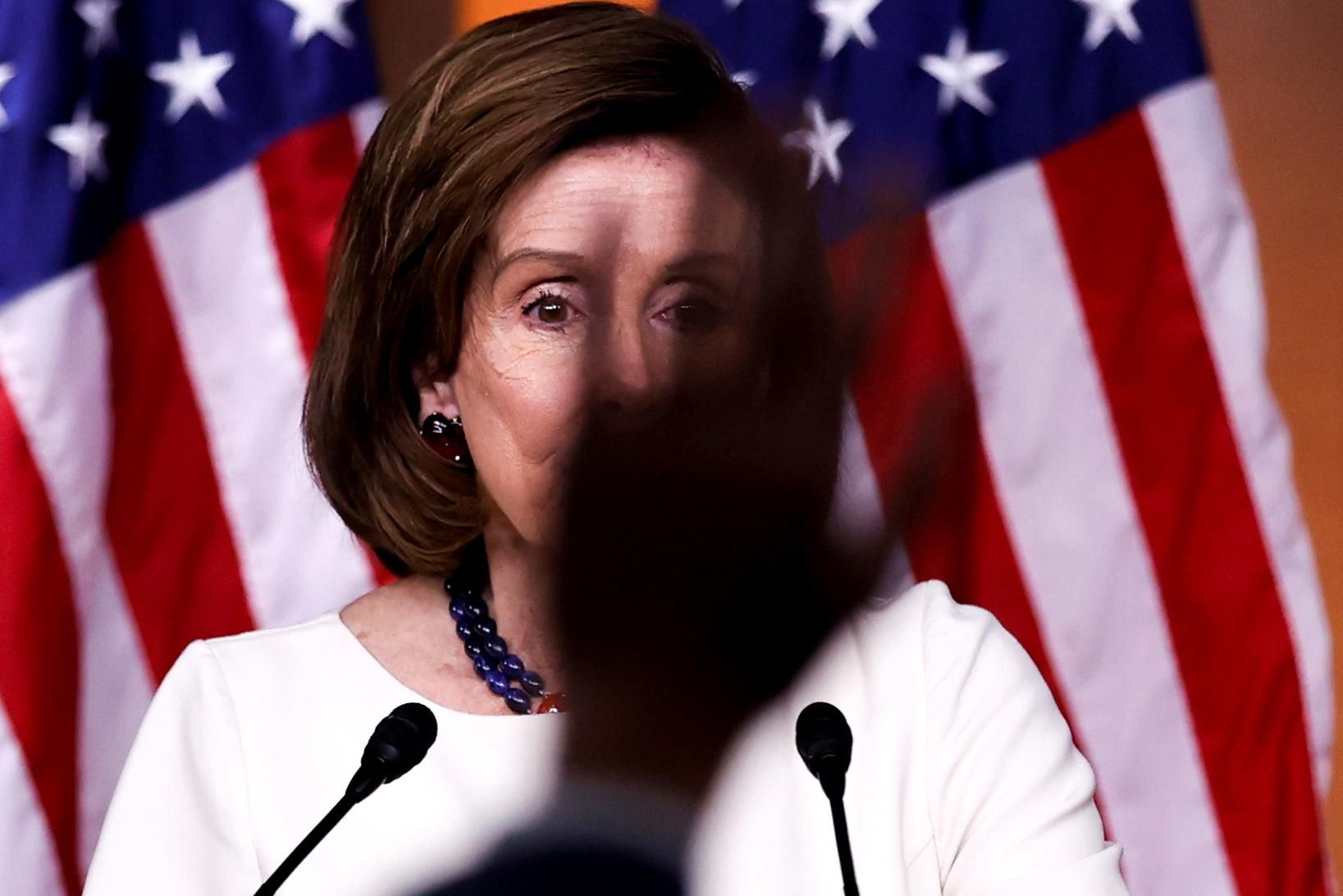Nancy Pelosi’s office announced Sunday that the US House speaker will be going this week to Singapore, Malaysia, South Korea, and Japan. But no mention of Taiwan, even after she met Singaporean officials on Monday.
This doesn’t necessarily mean she’s skipping her previously announced intention to tour the self-governing island of 24 million claimed by China. Perhaps the stopover was left out of her finalized itinerary anyway due to “security concerns” following threats from Beijing and the cold shoulder from the Pentagon and the White House.
Why did she want to visit? Mainly out of principle. Pelosi has long been one of Beijing’s harshest critics in the US Congress, questioning China’s policies on Hong Kong, Xinjiang, and Tibet. Years ago, she even unfurled a banner marking China’s brutal 1989 crackdown in Beijing’s Tiananmen Square.
The US speaker also has a soul sister in Taiwan’s President Tsai Ing-wen, whose democratic values and liberal policies reflect her own. And the US-China relationship has deteriorated so much in recent years that nowadays supporting Taiwan is a pretty bipartisan thing to do.
The stakes. Pelosi, second in line for the presidency, would be the highest-ranked US official to visit Taiwan in 25 years. But when Republican Newt Gingrich went there in 1997, China’s warnings were not taken as seriously as last week, when Xi Jinping told US President Joe Biden that Washington shouldn’t “play with fire” on Taiwan. (Previously, Biden had riffed that the US military thought the trip was not a good idea.)
To underpin Xi’s warning, China started live-fire military drills in the Taiwan Strait on Saturday, and Chinese state media even suggested shooting down Pelosi’s aircraft.
While most of that might be just bluster, it’s unclear what China will actually do next.
“Let's just say ‘something comes up’ and Pelosi can no longer visit Taiwan. What would be the concrete repercussions?” asks Derek Grossman, a senior defense analyst who watches the Indo-Pacific security space for the RAND Corporation.
If she cancels, “China would feel emboldened to continue its coercion versus Taiwan and versus US interests elsewhere in the relationship.” For Grossman, that’s “bad enough, but the cost isn't extraordinary.”
The bigger risk is if she pushes through with her original plan.
In that case, Grossman says China will respond “with actions such as military exercises and perhaps other measures like recalling their ambassador, cutting off mil-to-mil discussions, or implementing economic sanctions against the US and possibly Taiwan as well.”
The Xi factor. Pelosi’s Taiwan talk marks a big headache for China’s president, who so far is having a pretty terrible year due to the economic slowdown caused by his zero-COVID policy. And it’s happening at the worst possible time, just weeks before Xi is expected to secure a norm-defying third five-year term as Communist Party big boss in the fall.
Xi has tried to deflect attention away from China’s sluggish economy by burnishing his patriotic and national security credentials. This explains his unapologetic attitude for repressing Hong Kong’s pro-democracy movement and Uighur minorities in Xinjiang.
Idling by if Pelosi does touch down in Taipei would be quite the contrast to where Xi’s tough-on-Taiwan policy has been headed recently. Chinese air force incursions into Taiwan’s air defense zone have been escalating, and its navy’s massive buildup has led some US military planners to conclude an invasion of Taiwan might happen before the end of the decade.
Since Xi is unlikely to pipe down, the US National Security Council issued a very reassuring statement the day after Xi’s phone call with Biden, saying there’s “no need to come to blows” if Pelosi does visit Taiwan because America’s position of “strategic ambiguity” on relations with the island has not changed.
US domestic politics. China hawk Mike Pompeo, the former secretary of state and likely 2024 Republican presidential contender, is already complaining that Biden got bullied by “Chinese propaganda” and that a Pelosi pullout would be bad for business in securing the confidence of friends and allies in the Indo-Pacific.
The thing is, playing Taiwan politics is a very risky game with China. And a miscalculation on either side could trigger the invasion of the island by the world’s largest standing military. Pelosi certainly knows that — does Pompeo?